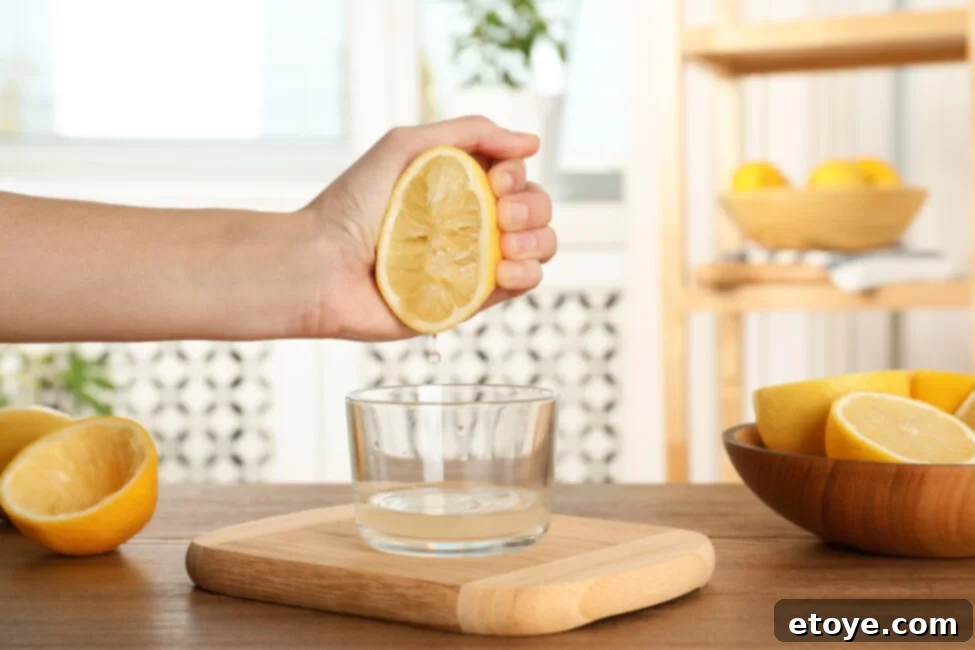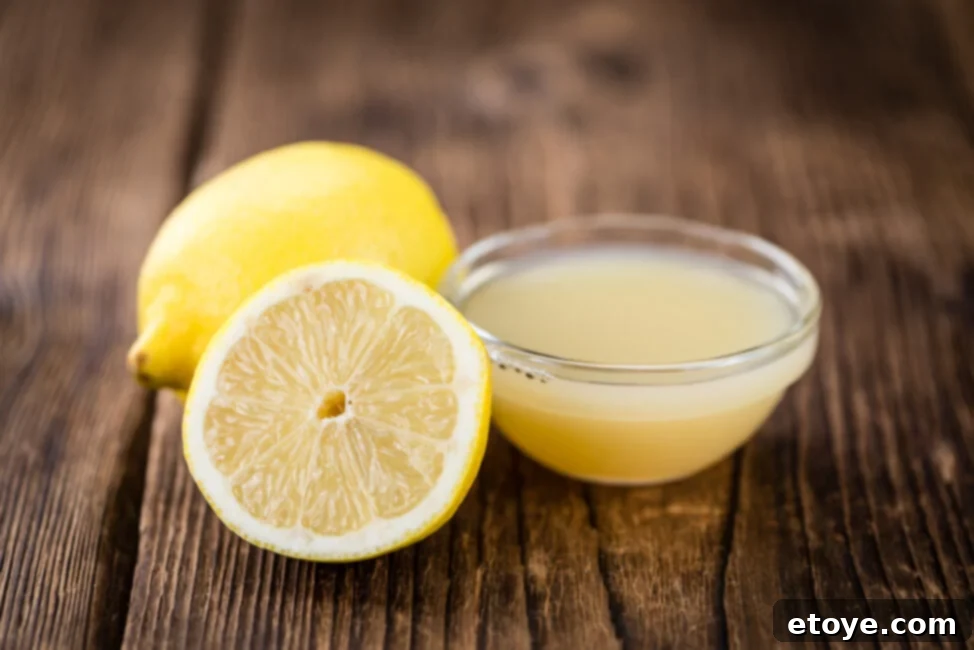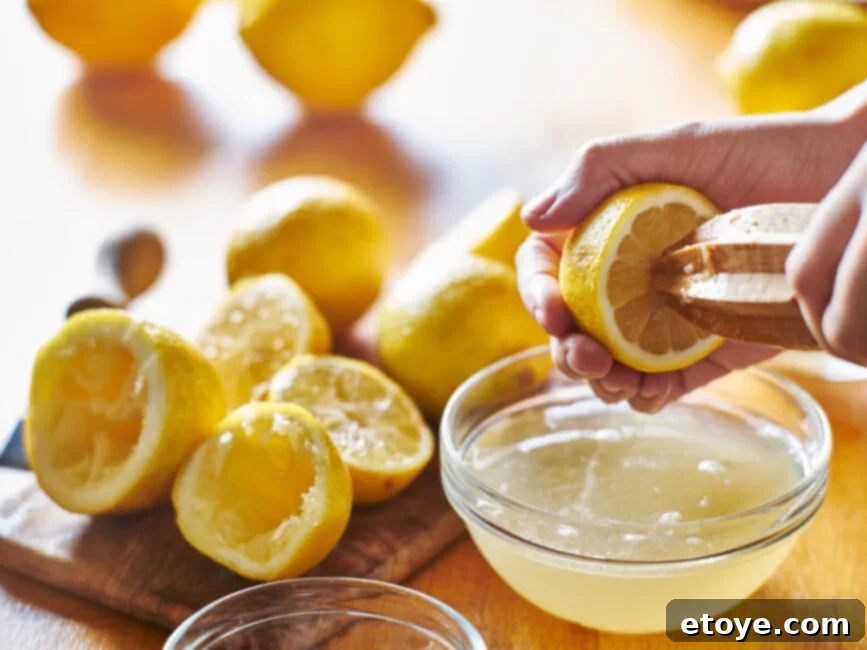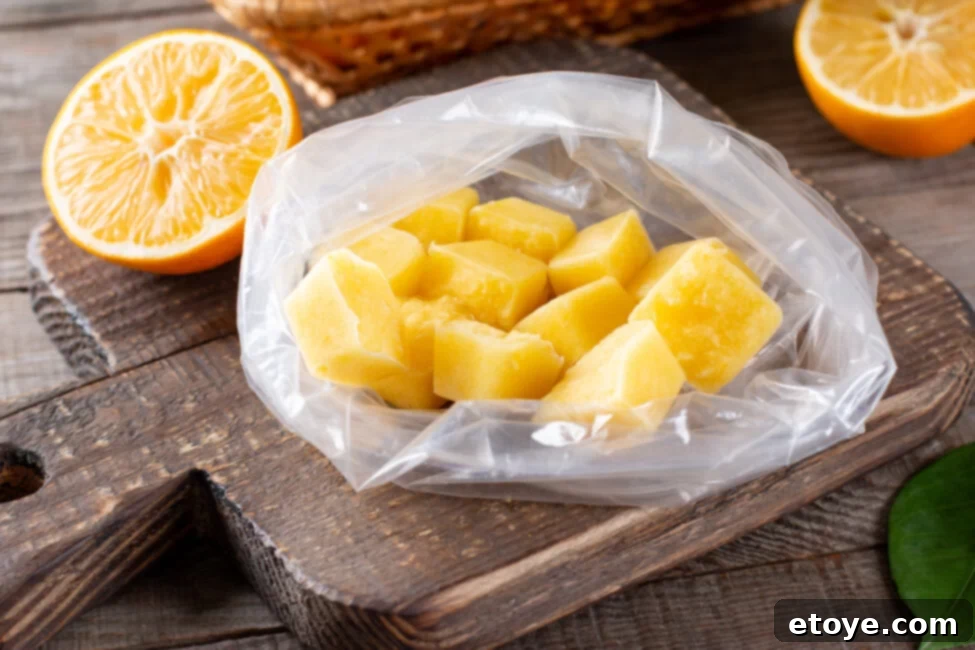There’s nothing quite like the bright, zesty tang of fresh lemon juice to elevate a dish or refresh a beverage. However, the delightful experience can quickly turn sour if you reach for a bottle in your fridge, only to find it looking a little suspicious. Understanding the intricacies of lemon juice’s shelf life is a common kitchen conundrum, a silent battle between preserving its vibrant flavor and succumbing to spoilage. Whether you’re whipping up a batch of homemade lemonade, adding a citrusy zing to your marinades, or simply enhancing your morning water, knowing how long this liquid gold truly lasts can make all the difference between a culinary triumph and a regrettable discard.
This comprehensive guide delves into everything you need to know about lemon juice longevity. We’ll explore the various factors that influence how long lemon juice stays fresh, from its type and ingredients to optimal storage conditions. We’ll also equip you with clear signs to identify when your lemon juice has passed its prime, offer practical tips to extend its freshness, and even inspire you with creative ways to use up any lingering leftovers. Say goodbye to the mystery of the expiring lemon juice and hello to a kitchen full of vibrant, long-lasting flavor.

The Essential Guide to Lemon Juice Shelf Life
So, you’re probably wondering: “How long does lemon juice last in the fridge?” The answer, surprisingly, isn’t a single number. The shelf life of lemon juice can range dramatically, from just a few days to well over a year, heavily depending on its type and how it’s stored. For instance, that delicious, freshly squeezed juice you made this morning will typically remain at its best for 3 to 4 days when kept refrigerated. On the other hand, commercially bottled lemon juice, fortified with preservatives, boasts a significantly longer shelf life, often remaining viable for many months, even after opening. The longevity of your lemon juice is a delicate balance influenced by several key factors, and understanding these can save you both money and culinary disappointment. Let’s dive into the juicy details that help keep your lemon juice fresh and flavorful for as long as possible.

Key Factors Influencing Lemon Juice Longevity
The lifespan of your lemon juice is not a fixed duration; rather, it’s a dynamic interplay of several crucial elements. Understanding these factors is fundamental to maximizing its freshness and ensuring you always have a potent, flavorful citrus kick at hand.
- Type of Lemon Juice: Fresh vs. Bottled
- Freshly Squeezed Lemon Juice: This pure, unadulterated form of lemon juice, without any added preservatives, has the shortest shelf life. Its natural enzymes and lack of protective additives make it susceptible to microbial growth and oxidation.
- Refrigerator: 3 to 4 days. Store it in an airtight container to minimize air exposure.
- Freezer: 3 to 4 months. Freezing is an excellent option for extending the life of fresh juice.
- Bottled Store-Bought Lemon Juice (Unopened): Commercial lemon juice undergoes pasteurization and often contains preservatives like sodium benzoate or sulfites, which significantly extend its shelf life. Before opening, it’s typically shelf-stable.
- Pantry (Unopened): Approximately 1 year or until the ‘best by’ date. Keep it in a cool, dark place away from direct sunlight and heat.
- Bottled Store-Bought Lemon Juice (Opened): Once the seal is broken, the juice is exposed to air and potential contaminants, reducing its shelf life, even with preservatives. It must be refrigerated.
- Refrigerator: Up to 6 months. Always reseal tightly after each use.
- Freezer: Indefinitely (though quality might degrade after 1-2 years).
- Homemade Lemonade: Lemonade, which typically includes water and sugar in addition to lemon juice, has a shorter shelf life than pure lemon juice. The added water dilutes the citric acid, and sugar can, in some cases, encourage microbial growth if not stored properly.
- Refrigerator: Up to 1 week. Keep it well-sealed.
- Freezer: 2 to 3 months.
- Freshly Squeezed Lemon Juice: This pure, unadulterated form of lemon juice, without any added preservatives, has the shortest shelf life. Its natural enzymes and lack of protective additives make it susceptible to microbial growth and oxidation.
- Ingredients and Composition: The composition of your lemon juice plays a critical role. Lemon’s natural citric acid acts as a preservative, hindering bacterial growth. However, when other ingredients are introduced, this protective quality can be altered.
- Pure Lemon Juice: Whether fresh or bottled, pure lemon juice benefits most from its inherent acidity.
- Diluted Juices (e.g., Lemonade): The addition of water reduces the concentration of citric acid, making the mixture more vulnerable to spoilage. Sugar, while a preservative in high concentrations, can also fuel yeast and bacteria at lower levels.
- Storage Conditions: How and where you store your lemon juice profoundly impacts its freshness.
- Airtight Containers: Essential for all types of lemon juice, especially fresh. Exposure to air accelerates oxidation, leading to flavor loss and spoilage.
- Temperature: Cold temperatures, primarily refrigeration, significantly slow down bacterial growth and oxidation processes.
- Light and Heat: Direct sunlight and heat sources can degrade the quality of bottled juice and accelerate spoilage in fresh juice, even before opening.
- Exposure to Room Temperature: Leaving lemon juice out at room temperature, even for a short period, can dramatically shorten its lifespan.
- Fresh Lemon Juice: Should not be left out for more than 2 hours. Beyond this, bacterial proliferation becomes a concern, and it should be discarded.
- Bottled Lemon Juice (Unopened): Can remain in the pantry for its stated shelf life, but once opened, it requires refrigeration immediately.
- Lemonade: Always requires refrigeration due to its diluted nature and sugar content.
- Additives and Preservatives: This factor primarily applies to store-bought lemon juice.
- Preservatives: Chemical additives like sodium benzoate are specifically designed to inhibit the growth of mold, yeast, and bacteria, thereby extending shelf life. While effective, some prefer to avoid them for taste or health reasons.
- Sugar and Water (in Lemonade): As mentioned, these can reduce the inherent preservative qualities of lemon juice, making lemonade a more perishable beverage. While freshly squeezed lemon juice offers superior quality, flavor, and a natural boost of Vitamin C without extra ingredients, its perishable nature requires diligent storage.
- “Best By” and “Use By” Dates: Always pay attention to these labels on commercially produced lemon juice.
- “Best By” Dates: Often indicate when a product is expected to be at its peak quality, not necessarily when it becomes unsafe. Unopened bottled lemon juice might remain good for 2-3 months past this date if stored properly.
- “Use By” Dates: More critical for perishable items, especially lemonade or fresh, ready-to-drink products. These dates suggest when the product is no longer safe to consume.

Identifying Spoiled Lemon Juice: Signs It’s Gone Bad
When life gives you lemons, you make lemonade! But sometimes, the lemon juice itself can turn on you. Consuming spoiled food carries risks, so it’s essential to recognize the tell-tale signs that your lemon juice has crossed over to the dark side. Here’s what to look for:
- Unpleasant Smell: Fresh lemon juice should have a clean, vibrant, and distinctly citrusy aroma. If your juice emits any unusual odors—such as a musty, yeasty, fermented, or sour-alcohol smell—it’s a strong indicator that bacteria or yeast have begun to grow. This is often the first and most reliable sign of spoilage.
- Changes in Appearance:
- Color: While lemon juice is typically a bright, clear yellow, spoiled juice might appear darker, duller, or even have an unnatural brown or orange tint.
- Clarity: Fresh juice is clear, perhaps with a slight natural pulpiness if freshly squeezed. If you notice an increased murkiness, cloudiness, or sediment at the bottom of the container that wasn’t there before, it’s a warning sign.
- Mold Growth: Any visible mold, often appearing as fuzzy green, white, or black spots floating on the surface or clinging to the container, means the juice is definitively spoiled and must be discarded immediately.
- Off Taste: If the juice passes the smell and appearance tests, a tiny taste can confirm its freshness. However, proceed with caution. If it tastes unusually bitter, sour (beyond its natural tartness), metallic, or just “off,” do not consume it. While a tiny sip of spoiled lemon juice likely won’t cause severe harm, it’s not worth the risk. The primary health risk associated with consuming spoiled lemon juice is food poisoning from harmful bacteria.
Remember the golden rule of food safety: “When in doubt, throw it out.” It’s better to err on the side of caution than to risk your health for a few drops of questionable lemon juice.
Optimal Storage Strategies to Maximize Lemon Juice Shelf Life
To ensure your lemon juice maintains its peak flavor and freshness for as long as possible, implementing proper storage techniques is crucial. These simple tips can significantly extend its viability.
- Utilize Airtight Containers for Refrigeration:
- Protection from Elements: Always transfer fresh or opened bottled lemon juice into an airtight container. This barrier protects it from absorbing odors from other foods in the fridge and, more importantly, minimizes exposure to oxygen.
- Oxidation Prevention: Oxygen is the enemy of fresh juice, as it causes oxidation, leading to flavor degradation and nutrient loss. A tight seal slows this process considerably.
- Material Choice: Glass jars or bottles are often preferred over plastic for storing lemon juice. Glass is non-porous and won’t absorb flavors or odors, ensuring the juice tastes pure. High-quality, food-grade plastic containers can also work, but avoid flimsy plastics.
- Headspace: Filling the container as much as possible, leaving minimal “headspace” at the top, can further reduce oxygen exposure, particularly for fresh juice.
- Keep It Consistently Chilled:
- Refrigerator is Key: The refrigerator is the best environment for most lemon juice storage. Cold temperatures (typically 35-40°F or 2-4°C) dramatically slow down the growth of bacteria and other microorganisms that cause spoilage.
- Placement: Store lemon juice on an inner shelf of the fridge, rather than the door. The door experiences more temperature fluctuations due to frequent opening, which can slightly reduce shelf life.
- Slowed Degradation: Consistent cold helps preserve the juice’s vibrant taste, tartness, and beneficial nutrients like Vitamin C by slowing down enzymatic reactions and oxidation.
- Freezing for Long-Term Preservation:
- Extended Shelf Life: For any amount of lemon juice you don’t anticipate using within a few days, freezing is the ultimate solution. This can extend its usability for several months.
- Ice Cube Tray Method: Pour lemon juice into standard ice cube trays. Once frozen solid (usually a few hours), pop the lemon juice cubes out.
- Transfer to Freezer Bags: Transfer these frozen cubes to a heavy-duty freezer-safe bag or an airtight container. This method not only extends shelf life but also offers convenient pre-portioned amounts for future recipes, eliminating waste.
- Labeling: Always label the bag or container with the date of freezing.
- Label and Date Everything:
- Tracking Freshness: Whether you’ve just squeezed a batch of lemons or opened a new bottle of store-bought juice, always label the container with the date. For fresh juice, note the date it was squeezed. For bottled juice, write the date it was opened.
- Preventing Guesswork: This simple habit eliminates guesswork and ensures you consume the juice within its optimal timeframe, reducing the likelihood of spoilage and food waste.

Embracing Leftover Lemon Juice: Creative Culinary Uses
Don’t let that precious leftover lemon juice go to waste! Its bright, acidic profile can enhance a myriad of dishes and drinks. Here are some fantastic ways to utilize every last drop:
- Flavorful Lemon Ice Cubes: Freeze lemon juice in ice cube trays. These are perfect for adding a refreshing, zesty kick to a glass of water, iced tea, or sparkling beverages. They’ll chill your drink without diluting the flavor like plain ice.
- Homemade Dips & Salad Dressings: Lemon juice is a cornerstone of many fresh and vibrant dressings and dips. It adds brightness and acidity that balances rich flavors.
- Whip up a tangy vinaigrette with olive oil, herbs, and lemon juice.
- Incorporate it into creamy dips like Healthy Hummus for a burst of freshness.
- Create a light and zesty dressing such as Creamy Avocado Dressing or a sophisticated Tarragon Yogurt Dressing.
- Marinades for Meats and Vegetables: Lemon juice acts as a tenderizer and flavor enhancer in marinades. Its acidity helps break down proteins and infuse food with bright notes. Use it for chicken, fish, shrimp, or even firm vegetables before grilling or roasting.
- Lemon Curd for Desserts: Transform your lemon juice into luscious lemon curd! This delightful spread is perfect for tarts, cakes, scones, or simply enjoyed by the spoonful. It’s an excellent way to extend the “life” of your lemons in a delicious, new form.
- Preventing Oxidation: A splash of lemon juice can prevent browning in cut fruits (like apples and avocados) and vegetables.
- Cleaning Agent: Beyond the kitchen, lemon juice is a natural, non-toxic cleaner. Use it to polish chrome, remove stains from cutting boards, or deodorize your garbage disposal.
Frequently Asked Questions About Lemon Juice Storage
Here are answers to some common questions about storing lemons and lemon juice to ensure you get the most out out of your citrus supply:
Can I freeze whole lemons?
Absolutely! Freezing whole lemons is an excellent way to extend their shelf life. First, wash and dry them thoroughly. Place them in a freezer-safe bag, removing as much air as possible before sealing. When you’re ready to use a frozen lemon, you can either thaw it at room temperature for a few hours or microwave it for 10-20 seconds to soften it, making it easier to juice or zest.
What’s the best way to store cut lemons?
Cut lemons are more susceptible to drying out and spoilage due to increased exposure to air. To maximize their freshness, store them in a small, airtight container or wrap them tightly in plastic wrap. Place them in the crisper drawer of your refrigerator. For optimal quality and to prevent them from drying out, aim to use cut lemons within 2-3 days.
Can lemon zest be stored for later use, and how?
Yes, lemon zest can be stored for future culinary use! For short-term storage, place the zest in a small, sealed container or a zip-top bag in the refrigerator, where it will last for about a week. For longer preservation, spread the zest thinly on a baking sheet and freeze until solid, then transfer it to a freezer-safe zip-top bag or an airtight container. Frozen zest can last for several months and can be used directly from the freezer in most recipes.
How can I extend the shelf life of lemon juice without compromising its quality?
The most effective way to extend lemon juice’s shelf life while maintaining its quality is proper refrigeration and freezing. Always store fresh or opened bottled lemon juice in an airtight glass jar or high-quality plastic container in the refrigerator. For quantities you won’t use quickly, freeze the juice in ice cube trays. Once frozen, transfer the individual lemon juice cubes to a freezer-safe bag, ensuring they are tightly sealed to prevent freezer burn. This method allows you to conveniently thaw and use only what you need, minimizing waste and preserving flavor.
Pucker Up and Savor the Zest!
From understanding the nuances of how long lemon juice lasts to implementing savvy storage techniques and discovering creative uses for leftovers, we hope this comprehensive guide has covered every angle of the citrus spectrum. Armed with this knowledge, you can now confidently harness the vibrant power of lemon juice, ensuring its freshness and flavor enhance your culinary adventures for longer. No more sour disappointments in the fridge – just pure, zesty delight!
Do you have any personal lemony tips or tricks you swear by to keep your juice fresh? Or perhaps a favorite recipe that beautifully showcases this versatile fruit? We’d love to hear your citrusy secrets and how you make the most of your lemon juice. Share your thoughts and wisdom in the comments section below!
Want More Related Tips to Keep Your Kitchen Fresh?
- How to Get More Juice from Lemons: Expert Squeezing Techniques
- How Long Does Shredded Chicken Last in the Fridge? A Food Safety Guide
- How Long Do Green Beans Last in the Fridge and Freezer? Maximize Freshness
- How Long Does Tea Last in the Fridge Before It Goes Bad? A Complete Guide
